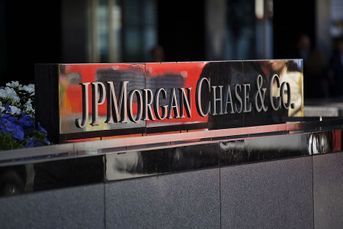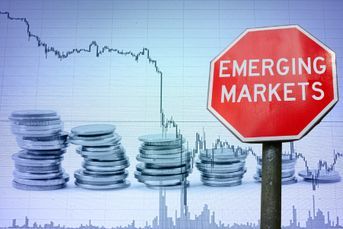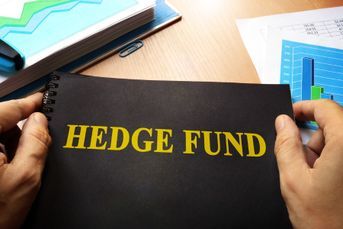‘Demolished’ corporate-debt market a bargain shopper’s delight
Investors demanding higher yields, even for better credits; 'lot of gems out there'
The worst month for corporate credit since markets seized up in 2008 means investors are finding value in everything from junk bonds to debt backed by commercial mortgages.
The extra yield investors demand to own corporate bonds instead of Treasuries widened 44 basis points last month to 193 basis points, or 1.93 percentage points, Bank of America Merrill Lynch index data show. High-yield company debt lost 3.57 percent. Spreads on high-rated commercial mortgage bonds jumped 67 basis points to 306. Leveraged loan prices tumbled 3.89 percent to 89.11 cents on the dollar.
“Corporates have entered this period with much stronger balance sheets and in particular I think many high-yield corporates are in a much stronger position to weather a storm,” said Dan Shackelford, a money manager who helps oversee $15 billion in fixed-income assets at T. Rowe Price Group Inc. in Baltimore. He said he’s more inclined to buy, “as opposed to throwing it all out and running for the hills.”
U.S. corporate profits rose 31 percent in the first quarter from a year earlier, the biggest gain since 1984, Commerce Department data released in Washington showed last week. Earnings surged as fast only six times in the past 60 years, according to Barclays Capital.
Each of those periods was followed by real gross domestic product growth of at least 3 percent the following year. The last time it happened, in 2004, the economy expanded 3.6 percent, from 2.5 percent in 2003, and yield spreads on investment- and speculative-grade corporate debt narrowed to an average of 138 basis points, from 171.
“Junk bonds and credit have gotten so demolished,” said Burt White, who helps oversee $284 billion of securities as chief investment officer at LPL Financial Corp. in Boston. “You go in and pick up bargains.”
White favors industrial company bonds, bank loans and high- yield debt. Sanjay Joshi, a money manager at London & Capital Group Ltd., is buying bonds of commodity and retail companies.
“Measures to rebuild market confidence have been put in place,” said Joshi, who helps oversee more than $2.7 billion of assets. “We are seeing companies perform well with balance sheets healthier and a move into longer-term debt.”
Yield premiums on company bonds narrowed at the end of last week as reports showed a gauge of U.S. consumer sentiment rose and purchases of new homes jumped to a two-year high. European governments have pledged to slash record budget deficits, with Greece promising to implement austerity measures equal to almost 14 percent of GDP in exchange for $1 billion of European Union rescue funds.
That wasn’t enough to keep bonds from losing 0.45 percent on average in May, the first down month since dropping 0.57 percent in December, Bank of America Merrill Lynch indexes show.
Corporate bond issuance worldwide slowed to $69.9 billion, from $183 billion in April and the least since August 2003, according to data compiled by Bloomberg. At least 14 companies withdrew offerings, including New York-based retailer Jones Apparel Group Inc. and Regal Entertainment Group., the Knoxville, Tennessee-based theater chain operator.
David Tepper, who runs Short Hills, New Jersey-based hedge fund Appaloosa Management LP, favors bonds backed by mortgages on everything from skyscrapers to shopping malls after yield spreads on the highest-rated debt widened by the most since February 2009, as measured by Barclays indexes.
“There’s a lot of gems out there” in the commercial collateralized mortgage-backed securities market, Tepper said May 26 at the Ira Sohn Investment Research Conference in New York. He also recommended buying American International Group Inc.’s junior subordinated debt.
Michael Donelan, who oversees $3.5 billion of bonds at Ryan Labs Inc., snapped up Goldman Sachs Group Inc. notes last week after dumping financial debt in early May. Corporate spreads “have really priced in a lot of bad news,” said Donelan, the firm’s director of trading and head money manager based in New York.
Theodore Stamos, who helps oversee $70 billion of assets at Investec Asset Management Ltd., said he likes financial bonds after U.S. lawmakers “watered down” proposed regulatory changes for the industry presented to the Senate last month.
“In the medium to long term, we see value in financial names which have recently underperformed,” said Stamos, a credit analyst and money manager based in London. “We could see more stability in June, as we haven’t seen May’s kind of volatility since the stock market lows in March 2009.”
The selloff last month was a “deleveraging correction that has run its course” rather than a sign Europe faces a return to recession, BNP Paribas credit strategists led by Vivek Tawadey in London wrote in a May 28 report.
Markets rallied late last week as the Thomson Reuters/University of Michigan final May consumer sentiment index increased to 73.6 from 72.2 in April, according to a May 28 report. New-home sales in the U.S. increased 15 percent to an annual pace of 504,000 in April, the highest level since May 2008, while durable goods orders rose 2.9 percent, the biggest jump in three months, the Commerce Department said May 26.
Spreads on global high-yield bonds narrowed 35 basis points to 708 basis points on May 27 to 28 as markets recovered. That’s down from a seven-month high of 743 basis points on May 25 and
marks the biggest two-day drop since September, Bank of America Merrill Lynch index data show.
“Given the current thinness of the market, we must be cautious about drawing conclusions, but the bounce-back suggests there are investors who believe the fundamentals remain firm and will provide some support to prices,” according to Martin Fridson, the chief executive officer of Fridson Investment Advisors in New York.
Credit markets were dealt fresh blows over the holiday weekend. Spain, struggling with the euro area’s third-largest budget deficit, lost its top credit grade at Fitch Ratings and the European Commission said confidence in the region’s economic outlook worsened in May, contrary to economists’ expectations. The European Central Bank forecast banks will have to write off 195 billion euros of bad debts by 2011 and that their ability to sell bonds may be curtailed as governments finance deficits.
Fitch lowered Spain’s credit rating one step to AA+ from AAA after European markets closed May 28, saying that budget cuts “will materially reduce the rate of growth” of the country’s economy.
An index of executive and consumer sentiment in the 16 euro nations fell to 98.4 from 100.6 in April, the commission in Brussels said yesterday. Economists had forecast a confidence reading of 100.6, based on the median of 25 estimates in a Bloomberg News survey.
With governments facing “heavy financing requirements over the coming years” there’s a “risk of bank bond issuance being crowded out,” the Frankfurt-based ECB said in its biannual Financial Stability Report yesterday, when U.S. and U.K. markets were closed for public holidays.
The cost of insuring against a default by European banks rose, with the Markit iTraxx Financial Index of credit-default swaps on 25 financial companies climbing 14 basis points to a three-week high of 174 as of 11:04 a.m. in London, according to JPMorgan Chase & Co.
The Markit iTraxx Crossover Index of default swaps on 50 mostly junk-rated European corporates jumped 31.2 basis points to 586.2, Markit Group Ltd. prices show
Credit-default swaps pay the buyer face value in exchange for the underlying securities or the cash equivalent should a company fail to adhere to its debt agreements. A basis point on a contract protecting 10 million euros of debt from default for five years is equivalent to 1,000 euros a year.
Debt investors found havens in investment-grade bonds of health care and service companies in May, which rallied 0.63 percent and 0.48 percent, compared with an average loss of 0.65 percent, according to Bank of America Merrill Lynch’s Global Broad Market Corporate Index. Insurers’ bonds gave up 2.14 percent and high-yield bonds lost 4.01 percent.
“There will be good buying opportunities to snap up bargains in the next one to three months,” said Felix Freund, a Frankfurt-based money manager at Union Investment GmbH, which oversees 160 billion euros ($196 billion) of assets. “The dust will eventually settle, and there are assets including corporate bonds that aren’t directly linked to the sovereign crisis and have sold off too much.”
Learn more about reprints and licensing for this article.








